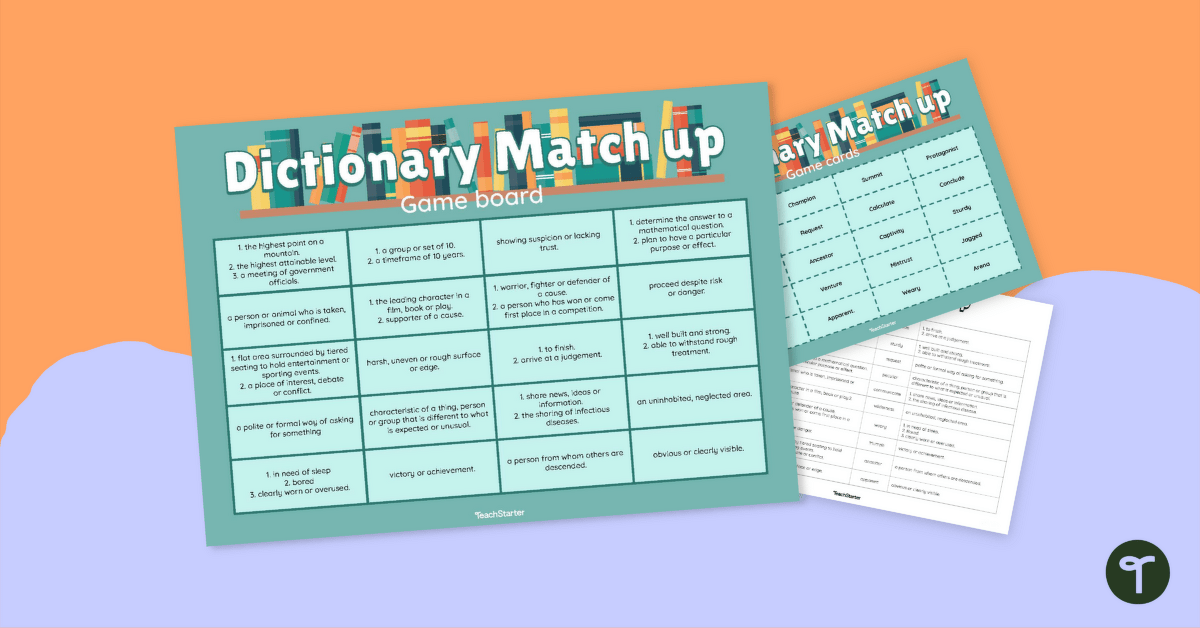A set of 20 word cards for students to match to their definition.
Dictionary Skills + Building Vocabulary
Dictionaries provide a wealth of information on the meaning, pronunciation, and usage of words, and when students learn how to use them effectively, they can significantly enhance their vocabulary skills. In this dictionary match-up game, students practise their dictionary skills by using a dictionary to locate the definition of the word, before matching it with the correct definition.
An answer sheet has been provided for this resource.
Download and Print
Use the drop-down menu to choose between PDF (colour and black and white) or an editable Google Slides version. This means you can edit this dictionary game to suit the skills and needs of the students in your class.



2 Comments
Write a review to help other teachers and parents like yourself. If you'd like to request a change to this resource, or report an error, select the corresponding tab above.
No comments yet.